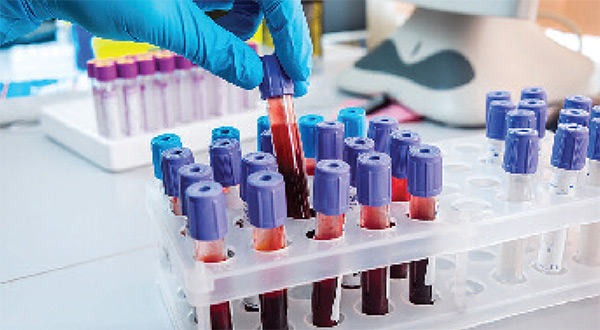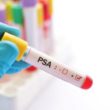Prostate Health Index (phi) Is A More Specific Test to Screen for Prostate Cancer

The prostate-specific antigen (PSA) test is widely used for prostate cancer screening. However, PSA has limited specificity for prostate cancer. The Prostate Health Index (phi) is nearly 3 times more accurate in detecting prostate cancer than the free/total PSA test. Combined with family and patient history, the phi score can be used to determine the best individualized screening approach for patients.
What do your Prostate Health Index (phi) test results mean?
The phi test measures three forms of PSA ([-2]proPSA, free PSA and total PSA), then uses a formula to calculate a combined PSA index to determine a patient’s probability of having prostate cancer found on a prostate biopsy.
Higher phi scores indicate a higher likelihood of finding prostate cancer with a biopsy. A phi less than 27 indicates a 9.8% chance of finding cancer, phi between 27 and 36 indicates a 16.8% chance of finding cancer, phi between 36 and 55 indicates a 33.3% chance of finding cancer, and phi of 55 of higher indicates a 50.1% chance of finding cancer.
The National Comprehensive Cancer Network (NCCN) Guidelines for Prostate Cancer Early Detection indicate that a phi greater than 35 is strongly suspicious for prostate cancer.
Studies have also shown that higher phi values are associated with a Gleason score of 7 or higher.
Better detection can reduce unnecessary biopsies
Physicians typically advise men with increased PSA levels in the range of 4-10 ng/ml to have a prostate biopsy. However, the PSA could be elevated for benign reasons. Approximately 75% of prostate biopsies are negative for cancer and thus may not be necessary.
If a patient has an elevated PSA test, the phi test can be used to more specifically screen for prostate cancer and better guide the decision to obtain a biopsy. The FDA has approved phi for men ages 50 years and older with PSA in the 4-10 ng/ml range and negative digital rectal examination (DRE) findings.
Dr. Catalona conducted several feasibility studies on the development of the phi blood test over 12 years. He also led the pivotal study that gained its approval by the US Food and Drug Administration (FDA).
















